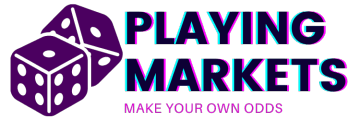Common in spot forex trading, lot sizes are the amount of units required to make a trade. Within forex trading, the lot sizes are typically 100,...
Blog
Playing Markets
Lot
The standardized number of units of a stock or asset that are being traded. For example, in forex trading (where trading in standardized amounts is...
Ichimoku Cloud
A collection of technical indicators that takes multiple averages and plotting them on a chart. This displays support and resistance levels in...
Liquidation Level
A security feature designed to protect traders and dealers from significant losses beyond a defined point. When a traders account funding reaches...
Head and Shoulders Chart Pattern
A fairly reliable bullish-to-bearish trading pattern. It is formed by three peaks, with the outer two peaks close in height and the middle peak the...
IPO
Also called a stock market launch, an Initial Public Offering (IPO) is the process of offering shares of a private corporation to the general public...
Historical Volatility Percentile
A measurement that tells you the percentage of trading days in the past year that had a lower volatility than the current volatility. The...
Inc. 5000
A list published by Inc. of the 5000 fastest-growing private companies in the US. The requirements to be included are 1. Be a US-based independent...
Fortune 500
A term used to refer to a list of the 500 largest companies in the United States as compiled by Fortune magazine each year. The companies are...
Fibonacci Retracement
Technical trading method based off the Fibonacci numbers in ratio form. A Fibonacci retracement is created by taking two extreme points on a price...
Fibonacci Extension
Fibonacci sequences are common patterns in nature that some traders believe to also be significant in financial markets. The common Fibonacci...
Exponential Growth
A pattern of data that represents greater and greater increases as time moves forward, mimicking the shape of an exponential function. In the world...
